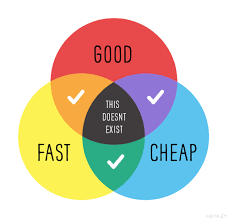Let me start by saying how glad I am that this place exists and to know that there are a great number of people thinking in similar directions ![]()
The situation in Budapest is ripening for a tech cooperative movement to spring up. To give a rote economic overview, there’s a great deal of capital flowing in as a lot of companies outsource their service centers or development to the East. These sectors are almost entirely unionized, fluctuation is high as people keep on switching jobs, burnouts are treated as a fact of life. With the relative cheapness of the city, we have a large number of expats relocating here, so the diversity of talent is pretty enormous.
Now for the most part, this sort of people would aggregate into startups, however as we all know that sort of boom is coming to a bust. Local politics and the average investor attitude here certainly doesn’t help.
With that being said, a few of us started looking at cooperative based solutions and we came across coops.tech as sort of a model on what we could feasibly achieve. Right now we’re in the early networking stage to gather a wide enough roster of people and skills to make the operation feasible. So far it’s looking promising, but we’re still very early on the road.
Interestingly, we do have a successful cooperative in the city called Gólya - and it’s a leftist bar. In fact they host the local degrowth conference and have showcased a number of interesting projects from all over - including cooperation Jackson as well as Faircoin/Faircoop. So the idea of a solidarity economy is a well planted seed.
I’ve registered here to learn and network so we may overcome the upcoming obstacles more easily, and to provide your community with a sort of gateway towards the developments around these parts.
As for me, I’ve been working in tech for about 10 years, and can almost do anything that isn’t actually coding. I’ve worked shifts in customer support, did risk management in credit card processing and marketing, fought online advertising fraud, did product management, helped a customer service automation startup, raised funds, wasted funds, burned out, got back in, did market research with AI and comments, sold product, etc. On the
